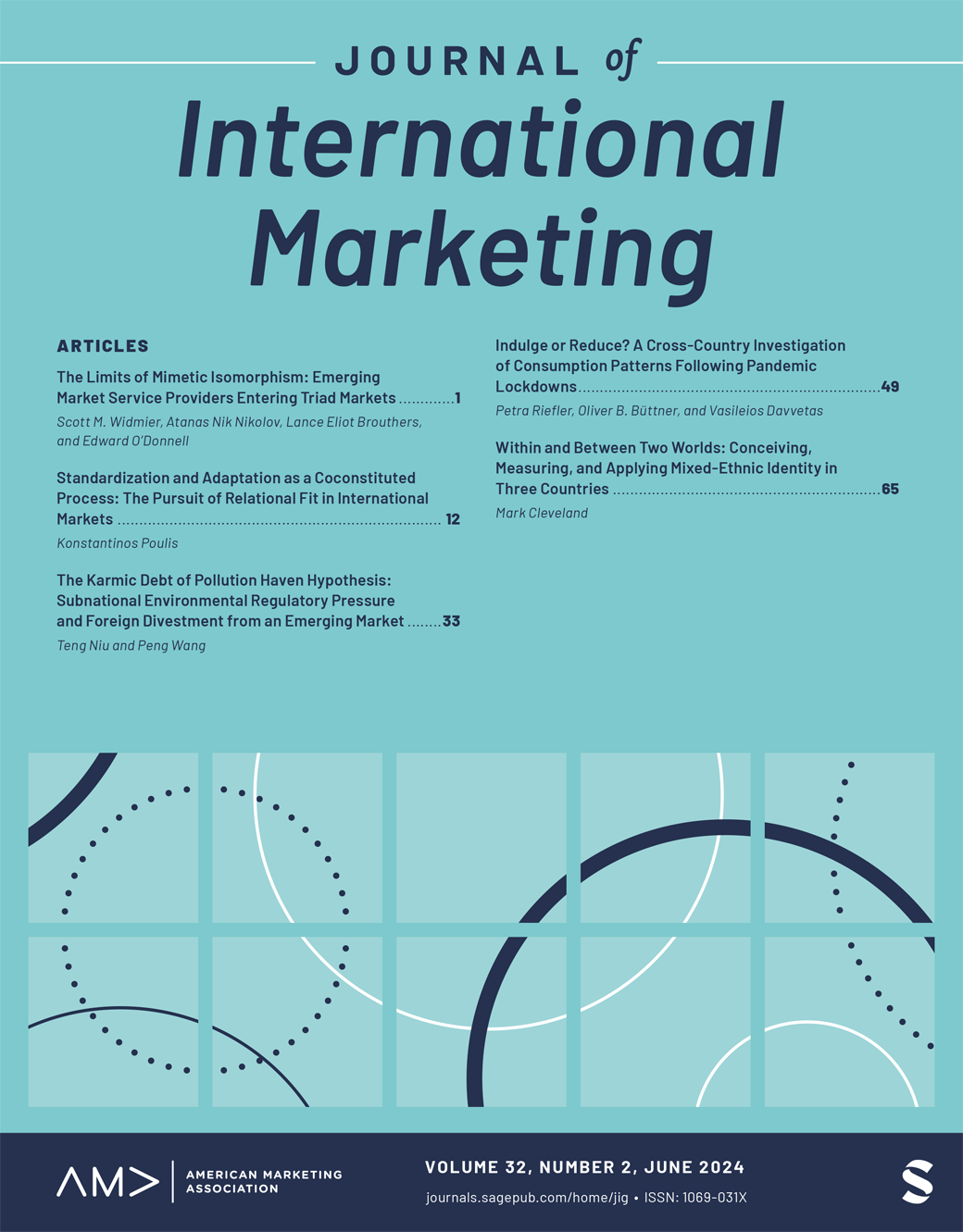Local Impact of Global Crises, Institutional Trust, and Consumer Well-Being: Evidence from the COVID-19 Pandemic
IF 4.9
2区 管理学
Q1 BUSINESS
引用次数: 9
Abstract
Global crises have become increasingly more frequent and consequential. Yet the impact of these crises is unevenly distributed across countries, leading to discrepancies in (inter)national crisis-regulating institutions’ ability to uphold public trust and safeguard their constituents’ well-being. Employing the paradigm of citizens as customers of political institutions, drawing on attribution and sociopolitical trust theories, and using the COVID-19 pandemic as an empirical context, the authors investigate how consumers’ relative perceptions of local impact following a global crisis affect the psychological processes of institutional trust formation and consumer well-being. Conducting one survey-based study in two countries affected disproportionately by the pandemic’s first wave (the United States and Greece) and one experimental study in a third country (Italy) during the pandemic’s second wave, the authors find that institutional trust declines more in countries whose citizens hold perceptions of higher relative local impact following a global crisis; institutional blame attributions explain trust erosion; institutional distrust decreases consumer well-being and adherence to institutional guidelines; consumers’ globalization attitudes immunize international institutions from blame and distrust; and political conservatives transfer blame and distrust from national to international institutions amid global crises. The findings enrich the institutional branding and trust literatures and have implications for stakeholders involved in global crisis management (e.g., policy makers, political marketers, institutional brand managers).全球危机的局部影响、机构信任和消费者福祉:来自COVID-19大流行的证据
全球危机变得越来越频繁和严重。然而,这些危机的影响在各国之间分布不均,导致(国家间)危机监管机构维护公众信任和保障选民福祉的能力存在差异。作者采用公民作为政治机构客户的范式,借鉴归因和社会政治信任理论,并以新冠肺炎疫情为实证背景,研究消费者在全球危机后对当地影响的相对认知如何影响机构信任形成和消费者福祉的心理过程。在受第一波疫情影响过大的两个国家(美国和希腊)进行了一项基于调查的研究,在第二波疫情期间在第三国(意大利)进行了另一项实验研究,作者发现,在公民认为全球危机后相对地方影响更大的国家,机构信任下降得更多;制度责任归因解释信任侵蚀;制度上的不信任降低了消费者的幸福感和对制度指导方针的遵守;消费者的全球化态度使国际机构免受指责和不信任;在全球危机中,政治保守派将指责和不信任从国家机构转移到国际机构。研究结果丰富了机构品牌和信任文献,并对参与全球危机管理的利益相关者(如政策制定者、政治营销人员、机构品牌经理)具有启示意义。
本文章由计算机程序翻译,如有差异,请以英文原文为准。
求助全文
约1分钟内获得全文
求助全文
来源期刊

Journal of International Marketing
BUSINESS-
CiteScore
8.70
自引率
17.20%
发文量
28
期刊介绍:
As the globalization of markets continues at a rapid pace, business practitioners and educators alike face the challenge of staying current with the developments. Marketing managers require a source of new information and insights on international business events. International marketing educators require a forum for disseminating their thoughts and research findings. Journal of International Marketing(JIM) is an international, peer-reviewed journal dedicated to advancing international marketing practice, research, and theory. Contributions addressing any aspect of international marketing management are published each quarter.
 求助内容:
求助内容: 应助结果提醒方式:
应助结果提醒方式:


